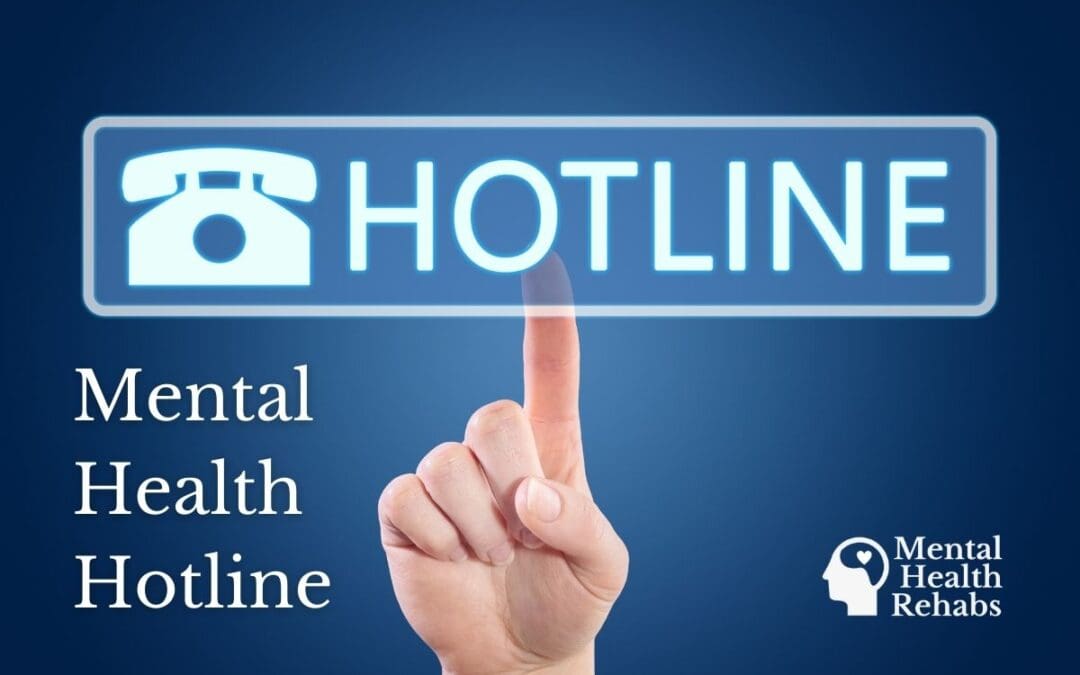The answer is simple: you should call as soon as you feel you need help. Taking care of your mental health is just as important as your physical health. Unfortunately, many still feel ashamed or embarrassed to seek help when struggling with mental health issues. If you’re experiencing feelings of anxiety, depression, or any other emotional distress, you don’t have to go through it alone.
Mental health hotlines offer you support and guidance when you need it the most. Crisis lines offer 24/7 emotional support for people who experience mental illness symptoms, providing access to trained professionals.
In this article, we’ll explore when calling a mental health hotline is appropriate. We’ll discuss the different types of hotlines available, what kind of support you can expect to receive, and how to prepare yourself for the call.
When is the Right Time to Call?
If you’re wondering whether you should call, it’s likely the right time. It’s normal to feel hesitant or unsure about calling a mental health hotline, but it’s important to remember that these resources are here for a reason. Hotlines can offer immediate support and guidance if you’re feeling overwhelmed, stressed, or just need someone to talk to.
More specifically, these are some specific cases when you’d benefit from calling a mental health hotline.
When You’re Feeling Suicidal
If you’re experiencing suicidal thoughts or feelings, please know you’re not alone. It’s imperative to ask for help; calling a mental health hotline can provide immediate support and resources.
Services like the Suicide & Crisis Lifeline, previously known as the National Suicide Prevention Hotline, can help you stay calm when in severe emotional distress and point you to one of their many crisis centers in a national network.
Suicide hotlines are staffed by trained professionals who can talk to you about your feelings, offer coping strategies, and provide you with referrals to other mental health services if needed.
Your life is valuable; reaching out for help is a sign of strength.
When You’re Experiencing Anxiety or Depression
Anxiety and depression can be overwhelming and debilitating, but you don’t have to suffer in silence. In fact, depression and anxiety are two of the most common mental illnesses worldwide.
Mental health hotlines can offer you support and guidance as you navigate these difficult emotions. Trained professionals can listen to you, provide you with coping strategies, and help you find resources in your community. Remember, you’re not alone, and there is help available to you.
Text HOME to 741741. The Crisis Text Line provides 24/7 support via text message to individuals experiencing any kind of crisis, including depression.
When You’re Struggling with Substance Abuse
Substance abuse can be a complex cycle to break, but it’s essential to know that help is available. Calling a mental health hotline can connect you with resources and support as you work toward recovery. Professionals can help you understand your addiction, provide you with coping strategies, and refer you to resources such as addiction treatment centers or support groups.
The Substance and Mental Health Services Administration (SAMHSA) has a hotline for treatment referrals and information services supporting substance abuse. It focuses on connecting people to local resources and help centers to help them manage their conditions. It’s available 24/7/365.
When You’re Struggling with Eating Disorders
Eating disorders can be complex and challenging, but (once again) you don’t have to face them alone… Notice a pattern here?
Mental health hotlines can provide support and guidance as you navigate your recovery. Professionals can help you understand your eating disorder, provide coping strategies, and refer you to resources such as eating disorder treatment centers or support groups.
You can reach the National Eating Disorders Association Helpline (NEDA) at 1-800-931-2237. The hotline provides information, resources, and support to individuals struggling with eating disorders and their loved ones.
Resources for Those Struggling with Mental Health
If you haven’t figured out the takeaway yet, you don’t have to struggle with mental health issues alone. There are many resources available to help you get the support and care you need. Whether you’re experiencing depression, anxiety, suicidal thoughts, substance abuse, or eating disorders, there are hotlines, support groups, and mental health professionals who can help you.
Here are a few resources to get you started:
- National Alliance on Mental Illness (NAMI): NAMI provides education, support, and advocacy for individuals and families affected by mental illness. They offer a helpline, support groups, and educational programs to help you navigate your mental health journey.
- Substance Abuse and Mental Health Services Administration (SAMHSA): SAMHSA provides information, resources, and referrals for individuals struggling with mental health and substance abuse issues. They offer a national helpline, treatment locator, and other resources to help you find the necessary care.
- Mental Health America (MHA): MHA provides education, advocacy, and support for individuals affected by mental health issues. They offer a mental health screening tool, support groups, and educational resources to help you understand and manage your mental health.
Remember, seeking help is a sign of strength, and there is no shame in reaching out for support. Whether you need immediate assistance or ongoing care, there are resources available to help you on your journey toward mental wellness.

